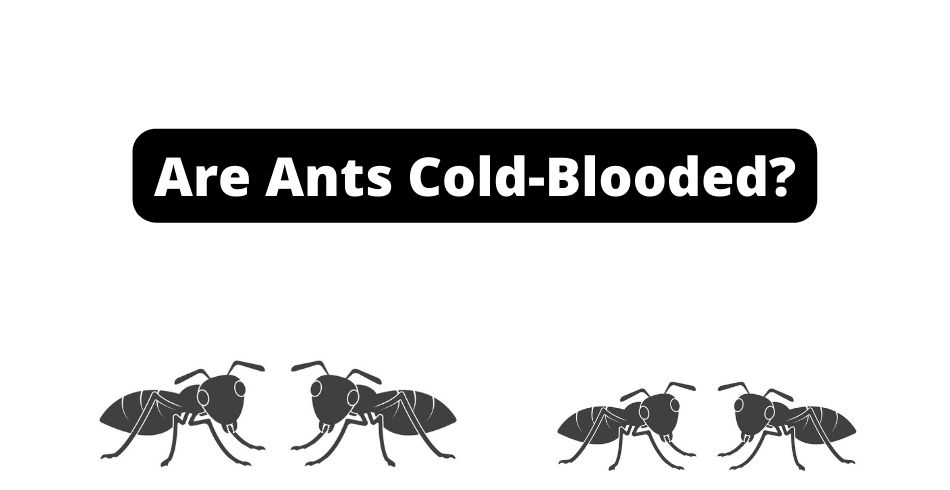When people think of cold-blooded animals, they commonly think of reptiles and amphibians. However, these aren’t the only cold-blooded animals on the block. In this article, we will explore whether ants are cold-blooded and look at some other exciting features of these tiny creatures.
Ants are cold-blooded insects. This means that their internal mechanisms do not regulate their body temperature, and instead, they rely on the external environment to regulate their body temperature. This is why you often see ants basking in the sun or huddling together when it’s cold outside.
One of the exciting things about ants is that they can survive in a wide range of temperatures. Some ants can even survive in freezing temperatures. This is because their bodies can adapt to the changing environment.
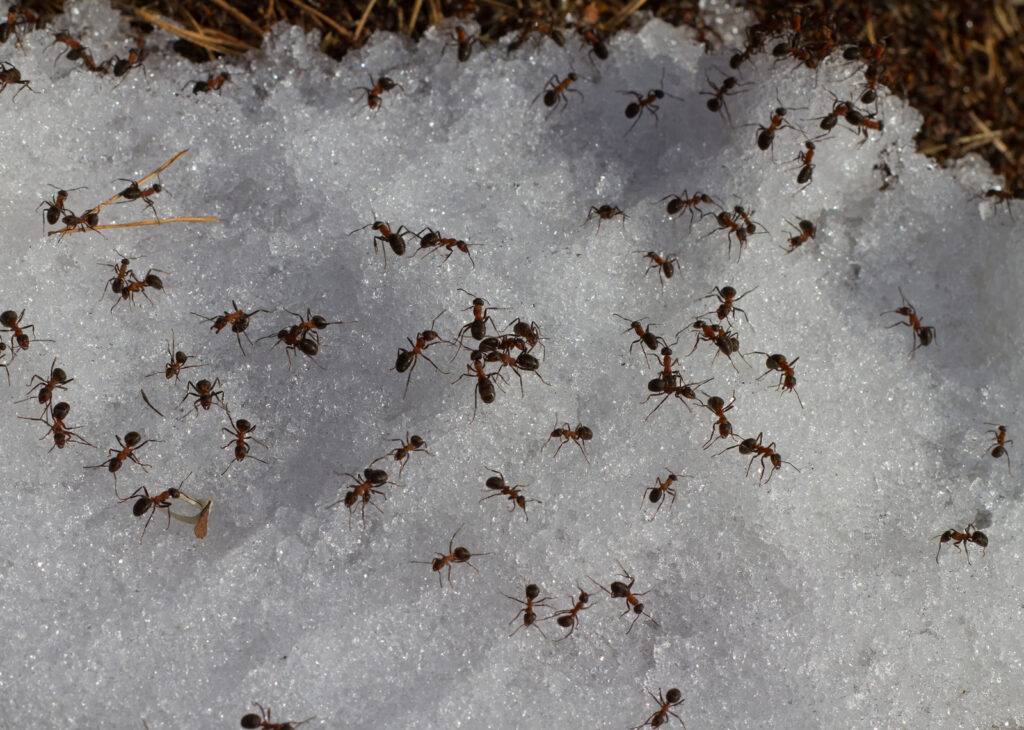
Why are ants cold-blooded?
Ants are cold-blooded because they don’t generate their own body heat and don’t have fur or feathers to insulate their bodies like mammals and birds. Ants are also tiny, hence lose heat faster than large animals. Being cold-blooded actually helps ants survive in their environment.
Ants don’t generate their own body heat because they don’t have a circulatory system to circulate warm blood around their bodies. (Source)
Instead, ants rely upon the sun to warm their bodies and the temperature of their environment to regulate their body temperature.
Their bodies are not insulated because they don’t have fur or feathers.
Instead, ants have a hard exoskeleton that protects them from the elements and helps them retain heat.
Finally, the small size of ants also contributes to their cold-bloodedness.
Small animals have a higher surface-area-to-volume ratio than large animals, which means they lose heat faster.
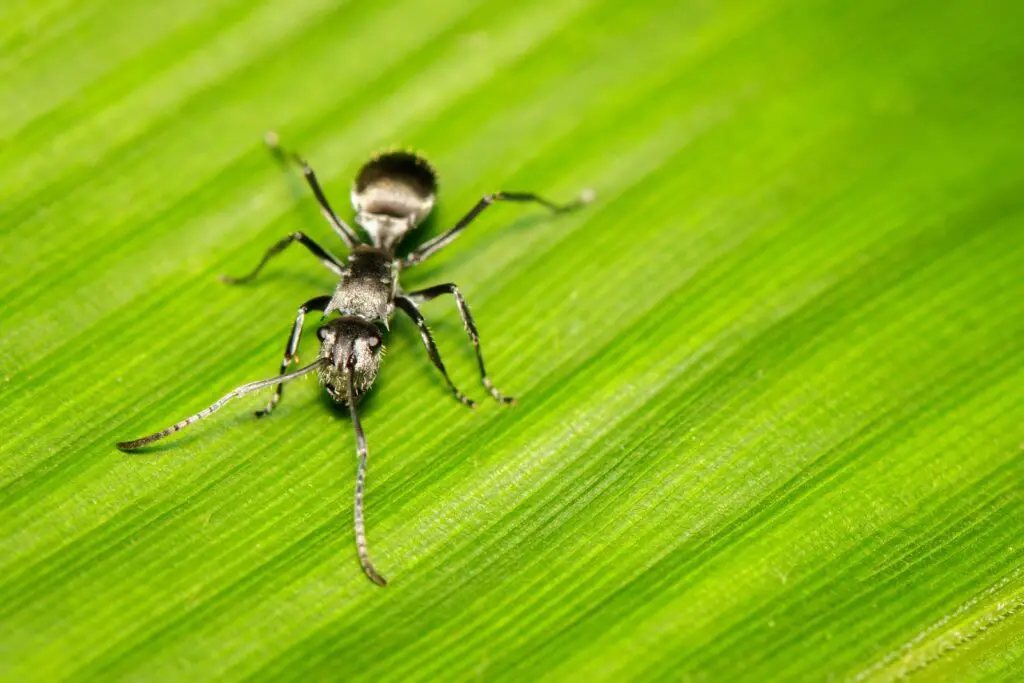
Do ants get cold?
Many ants get cold when the temperature drops, just like other animals. The difference is that ants can’t shiver to generate heat, so they must find different ways to keep warm. Some ants huddle together for warmth, while others burrow into the ground to escape the cold.
Some ant species hibernate during the winter months.
They will slow down their metabolism and go into a deep sleep.
They will wake up when the weather gets warmer, and they can start to look for food again.
Others, like winter ants, actually enjoy the colder weather.
These ants are more active in the winter and can be out and about looking for food when other ants are hibernating. (Source)
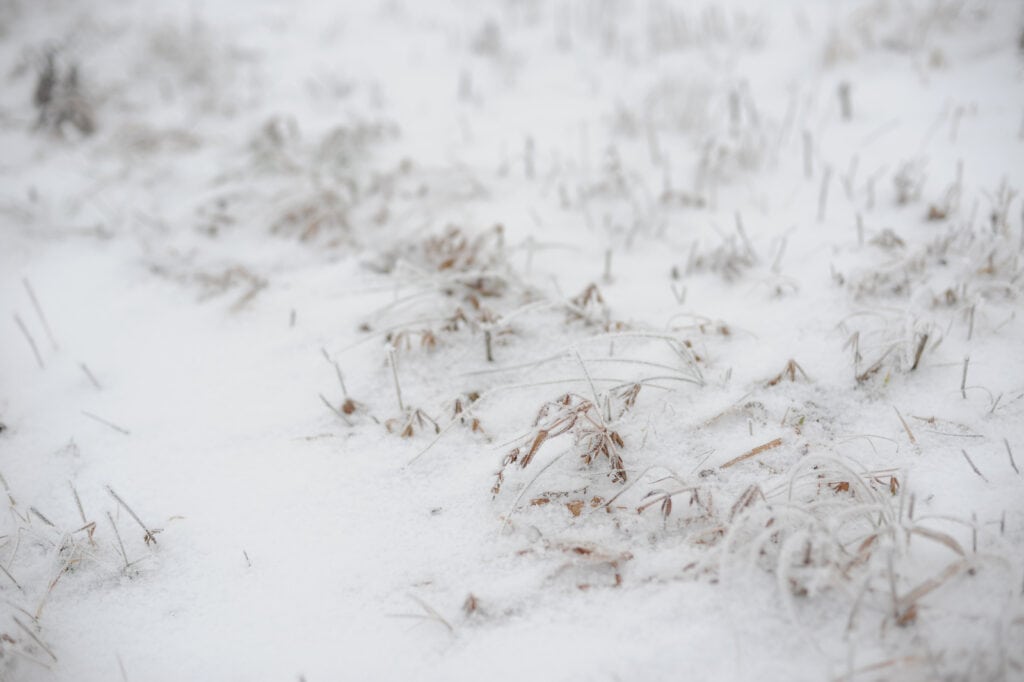
Do ants like cold air?
Some ants are attracted to cold air. Ants are cold-blooded, so they are naturally drawn to cooler temperatures. Some ants use cold air to cool their nests, and others prefer cooler climates. In general, ants are not bothered by cold air, but they may avoid it if it is too extreme.
Because ants are cold-blooded creatures, they cannot regulate their body temperature.
Therefore, they are more likely to be found in warmer climates.
However, some species can withstand colder temperatures.
These ants typically live in high altitudes or cold environments such as the Arctic.
While most ants do not mind cold air, there are some exceptions.
Some ants are attracted to cold air, while others avoid it altogether.
It is important to remember that each ant species is different and will have its own preferences regarding temperature.
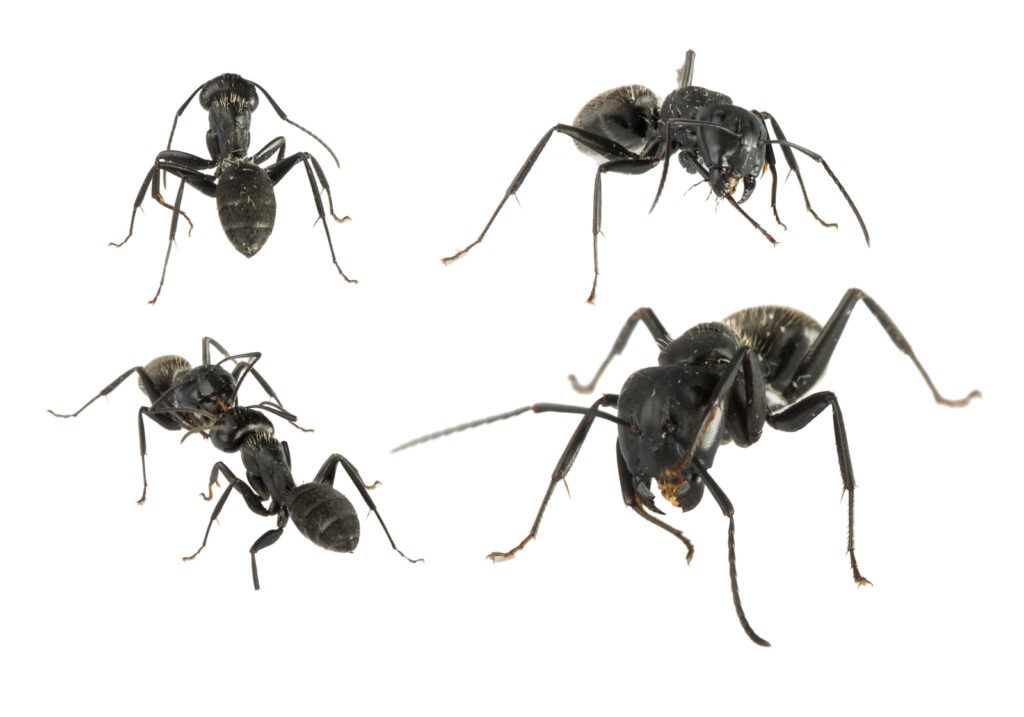
Do ants freeze to death?
Ants can freeze to death. In the winter, ants enter a state of dormancy to survive the cold weather. However, if the temperature drops too low, ants will die. Extreme cold can kill ants in as little as 24 hours.
We go over ants freezing much more in-depth in our other here.
You might see ants running around looking for food when it’s cold outside and snow on the ground.
There is a reason for this, they are trying to store up enough food to last through the winter.
If there’s an ant problem in your home, you may need to take matters into your own hands.
Pest control services or pest control measures will take care of ant infestation.
What matters most to ants in the winter is their food supply.
If ants inside the ecosystem can’t find enough food, they will starve to death.
That’s why keeping your kitchen clean and free of crumbs is essential.

If you keep the window of opportunity low by sealing up any cracks and cleaning crumbs, you lower the chance of an infestation.
Do ants feel the heat?
Ants feel the heat but have a few ways of dealing with it. They will stay in a warm place and move around, so they don’t get too hot. Ants keep the mound warm and use strategic tunnels to regulate the insides.
Ants react to changes in temperature, just like any other living thing, by trying to maintain a comfortable internal temperature.
If it’s too hot, they’ll move to a cooler spot.
They’ll find a warm place to huddle up if it’s too cold.
Some ants even hibernate in the winter to avoid the cold altogether!
Like humans, ants “sweat” to cool off when they get too hot.
They open up their exoskeletons to release the heat and close back up when they cool down.
An advanced form of panting (like a dog) is another way ants stay cool. (Source)
By moving their abdomens up and down, they circulate air and help regulate their body temperature.
When an ant gets too hot, it will die.
However, if an ant gets too cold, it will also die.
This is why heat sources like lightbulbs or sunbeams become a refuge for ants trying to stay warm in winter.

How hot can ants survive?
Some ants can stay alive in temperatures up to 140 degrees Fahrenheit, but most species are active only when the temperature is between 70 and 90 degrees. The nest of some ant species can withstand temperatures above 140 degrees for short periods.
If the temperature inside the nest gets too hot, the ant colony will move to a cooler location.
Some species of ants can stay alive in temperatures as low as -58 degrees Fahrenheit.
Ants are an active species in such a wide range of temperatures because they are cold-blooded.
When it’s hot outside, ants will move to a cooler location.
When it’s cold outside, ants will move to a warmer location.

What features help ants survive in extreme temperatures?
To survive in extreme temperatures, ants rely on their small size, cold-blooded nature, and exoskeletons. These three features, which make ants different from other animals, help them to regulate their body temperature and protect them from the elements.
Their small size helps them to lose heat more slowly than larger animals.

This is because their surface area to volume ratio is lower than that of larger animals. (Read More)
Ants are also cold-blooded insects and move to cooler or warmer areas to regulate their body temperature.
Lastly, ants have an exoskeleton that acts as a barrier to the outside environmental impact, helping to protect them from the cold or heat.
At what temperature do ants die?
Most ants will die at temperatures above 95 degrees Fahrenheit, though some species of ants can survive temperatures up to 122 degrees Fahrenheit. However, most species will die below freezing, different ant species have different temperature tolerances.
Carpenter ants and honey pot ants are some of the most heat-tolerant species.
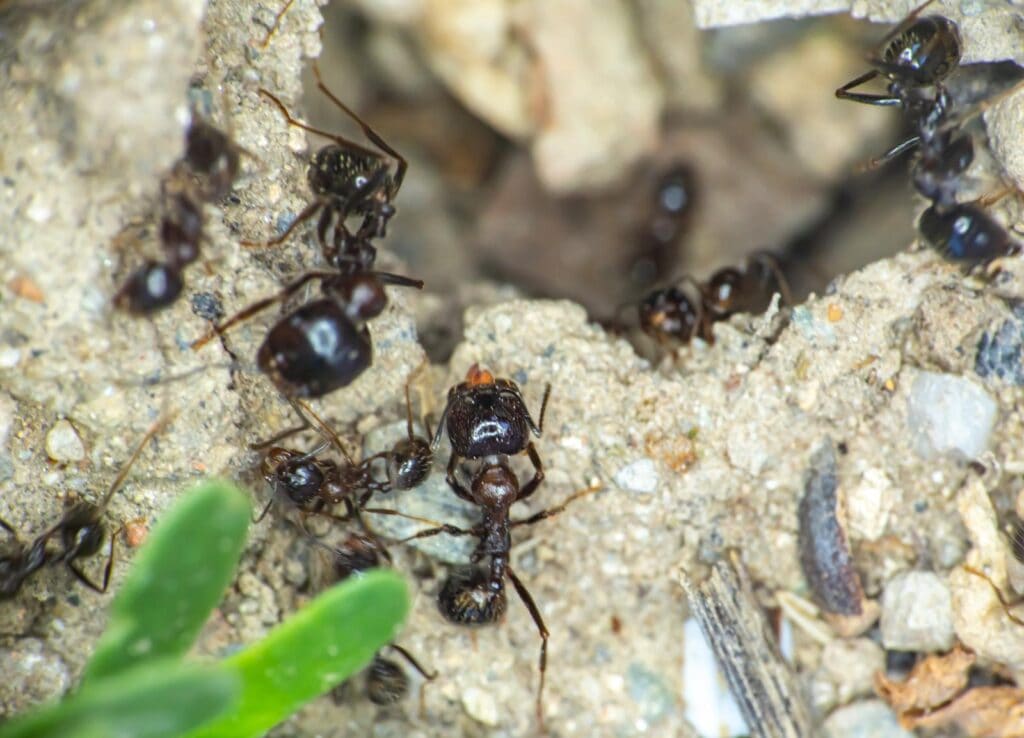
On the other hand, Harvester ants are very sensitive to temperature changes and will die at temperatures as low as 50 degrees Fahrenheit. (Source)
Winter can be challenging for ants, as they are more likely to die from the cold than from any other environmental factor.
Bottom line, are ants cold-blooded?
Ants are cold-blooded.
They don’t have an internal mechanism to regulate their body temperature, and they are affected by the temperature of their environment.
When it’s cold, ants will become sluggish and may even die.
In hot weather, ants are more active but can also die from overheating.
If ants become a bother, you need professional pest control solutions for pest-free maximum effectiveness at home or office.
